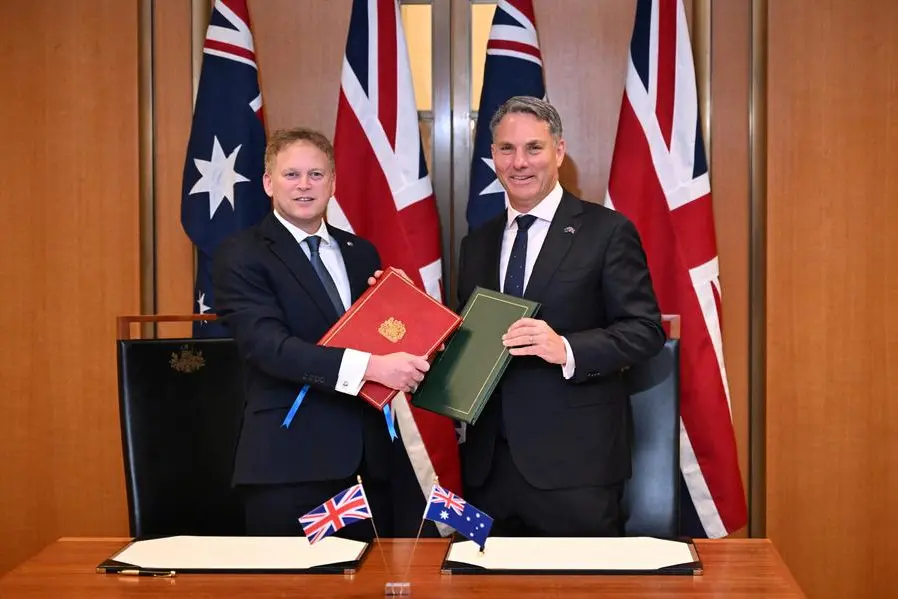PHOTO
Australia and the United Kingdom on Thursday signed a new defence and security cooperation agreement that makes it easier for their defence forces to operate together in each other's countries.
British Foreign Secretary David Cameron and Defence Secretary Grant Shapps were in Australia for annual talks on Friday with their counterparts in Adelaide, where local media have reported that a British company is expected to be named as the contractor to build a nuclear submarine under the AUKUS agreement.
The treaty signed on Thursday requires the two nations to consult each other if they come under threat, Shapps told reporters in Canberra.
"The need to act together never been more pressing than it is today," said Shapps.
The world had moved from a post-war world to a pre-war world, he added.
"Not because we are about to go to war tomorrow, I hope, but because we need to be more prepared than ever before. Our stance needs to change," he said, pointing to the conflict in Ukraine as being relevant to the Indo Pacific region.
Australian Defence Minister Richard Marles said the treaty added a strategic dimension to one of Australia's oldest partnerships, noting that the UK had a much bigger presence in the Indo-Pacific region than it has in a long time, and it would send a carrier strike group to the region next year.
Marles said that Britain would contribute to a submarine rotational force in Australia, and that the treaty would strengthen the ability of the two militaries to work together.
The UK will also contribute to a Combined Intelligence Centre in Australia, within Australia's Defence Intelligence Organisation.
Under the AUKUS deal between Australia, Britain and the United States, Australia will buy several U.S. Virginia-class submarines in the next decade, and build a new AUKUS submarine at Adelaide shipyards by 2040.
Australia is boosting defence interoperability and military exercises with the United States and regional partners after a defence
review last year
said China is undertaking the largest military buildup of any country since the end of World War Two.
(Reporting by Kirsty Needham and Renju Jose in Sydney; Editing by Tom Hogue, Cynthia Osterman and Gerry Doyle)





















